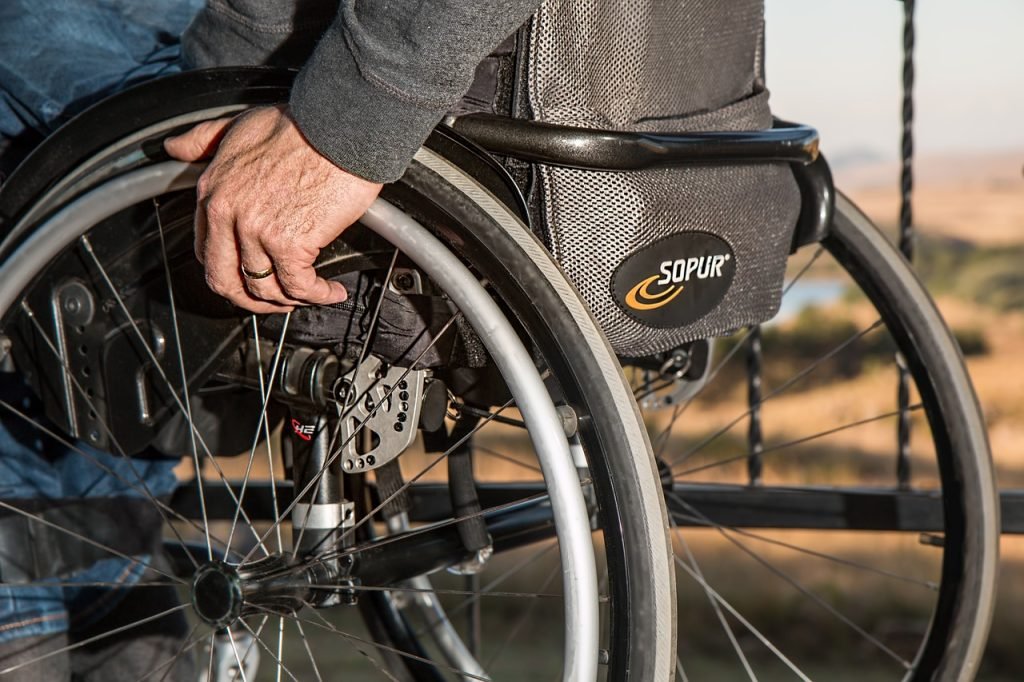Benefits of Having Expertise in Disability Services
Having expertise in disability services is a great advantage to any healthcare provider. This is because it allows providers to tailor their services to each patient’s individual needs. A provider who is knowledgeable in disability services will be able to help patients with daily living skills. This will also allow a provider to better treat patients and their families.
Academic experts
One of the many benefits of European Union membership is the opportunity to access a large pool of talented academic experts in the field of disability services. The best part is that the European Union has a policy on the books that encourages its members to share research and knowledge with each other.
The European Commission’s Disability Unit is the most important of these mutually beneficial relationships. Its mission is to ensure quality in disability services throughout Europe. As a result, the unit has become a hub for innovation and knowledge sharing, both in the EU and around the world. Its mission is a trifecta of responsibilities – policy, research, and implementation. Among its many accomplishments is the creation of the aforementioned Academic Network of European Disability Experts, an acronym-laden nameplate to boot.
This group is responsible for implementing Europe’s flagship policy of enlargement and ensuring quality in disability services across Europe. Among its other responsibilities is the management of the European Union’s research and innovation budget.
With this, the unit is able to keep pace with the latest developments in the field. For instance, the unit has a hefty budget for implementing the European Commission’s new EU-funded project to make Europe’s highways and motorways accessible to people with disabilities.
Liaisons
CUSF is not alone in its quest to make the most of its students and faculty with disabilities. The University of California, the San Francisco Office of Disability Services, and the Academic Skills Center are the main drivers of a campus-wide disability services initiative.
This includes services such as campus navigation, note-taking, and extended testing time. The campus also has an online resource guide that outlines its policies and procedures. Similarly, the UCSF Medical Center has a Disability Resource Center that helps patients find services and accommodations for their needs.
UCSF Health also has a robust community outreach program that includes an experienced liaison whose main job is to connect with patients deemed fit for the hospital’s care. This person’s mission is to demonstrate the most efficient ways to get patients the care they deserve. Other notable responsibilities include educating patients on available hospital services and making them aware of the hospital’s most noteworthy accomplishments.
UCSF’s campus is full of notable achievements, including the largest student body and the highest percentage of students with disabilities in California. To help support students with disabilities, the UCSF Health Medical Center has a dedicated Disability Services Office that provides a variety of programs and services, including academic support, disability accommodations, and other services.
The Disability Services Office acts as a liaison with federal and state resources related to disabilities. The Office of Disability Services offers a variety of services and programs for its faculty. The best thing about this office is the knowledgeable and enthusiastic staff who want every student to succeed.
Facilitators
Using the social model of disability, this study explores the subjective experiences of DET facilitators. DET is an internationally-used disability education technique, which promotes the empowerment of people with disabilities. The purpose of the study was to examine the lived experiences and perspectives of DET facilitators from Mongolia. The results show that DET facilitators have different experiences after and during DET training. The findings are important for a better understanding of the facilitators’ lives.
Semistructured interviews were used to analyze the lives of the facilitators. Purposive sampling was used to select the interviewees. Interviews focused on the experiences of DET facilitators. The interviewees’ narratives indicated that their perceptions of disability were reshaped during the training process. The interviewees’ narratives revealed that they understood the social model of disability more deeply.
The study’s main findings are that a majority of DET facilitators viewed participation as a matter of attitudes in society. They also viewed the societal participation of disabled people in general.
The study found that DET facilitators’ experiences during and after DET training could differ from what is documented in DET manuals. Some facilitators also reframed their experiences using the social model. The social model of disability is a model developed from the disabled people’s movement. It has helped people with disabilities understand themselves, their rights, as well as the rights of others.
Among the DET facilitators selected for the study were people with various impairments. The facilitators shared their experiences with DET training and their personal background. They said that DET training helped them improve their facilitation skills. They also reported that they learned the importance of being flexible. Facilitators also stated that they had to overcome obstacles.
Advocates
Throughout New York State, many community resources are available to meet the needs of individuals with disabilities. These resources include support, counseling, and advocacy services. Some of these services are free. If you require a specific service, contact the agency directly.
Disability advocacy is a way for people with disabilities to understand and advocate for their rights and get legal assistance. This includes helping people with disabilities navigate their grievance process and representing them in court. If you are looking for a disability advocate, you can visit the Self-Advocacy Association of New York State (SANYS) to find an agency in your area.
Disability Rights New York (DRNY), advocates for New Yorkers with disabilities. DRNY’s annual goals focus on increasing the participation of persons with disabilities in the community and advancing the rights of individuals with disabilities.
Individuals with disabilities can get free legal help from DRNY. This includes helping people with disabilities file complaints with government agencies. It also investigates complaints about discrimination against persons with disabilities. It provides advocacy services to individuals who have been denied assistive technology or services.
The Office of Protection and Advocacy for Persons with Disabilities (OPAD) is a state agency that investigates complaints of discrimination against persons with disabilities. It is an independent state agency that safeguards the rights and dignity of persons with disabilities. It also provides training and educational services.
There are many other advocacy agencies that help people with disabilities throughout the country. Some of these organizations focus on issues related to mental illness, housing, and developmental disabilities. They are free and confidential. You can find them through healthfinder.gov, which is a website that provides information about nonprofit organizations and government agencies.
Medical vs. social models of disability
Despite the differences between medical and social models of disability, most people still agree that both models can be useful. They are imperfect explanations of the world. But, more data is needed to make any comparison. The medical model is based on older ideas. The social model emerged in response to the civil rights movement of the late twentieth century.
The medical model is concerned with diagnosis and treatment. The social model, on the other hand, focuses more on social equity and disability policies. It also considers the impact disability has on an individual’s identity.
The medical model is based upon a paternalistic view of disability. It says that the responsibility for fixing disability lies with professionals with special training. This may sound great, but it can also lead to low expectations and a loss in independence.
In the social model, however, fixing disability support services in Melbourne is the responsibility of anyone who wants to include disabled people in society. It also points to ethical considerations for health care professionals. It is clear that people with disabilities do not automatically become sick. They have many personal issues to address.
The medical model has spurred tremendous advances in rehabilitation. However, it also leads to impoverishment and institutionalization of people with disabilities. In addition, it fails to provide a realistic perspective from the disabled person’s perspective.
Social models of disability are more inclusive. While it acknowledges that people with disabilities may have personal problems, it also stresses that disability is a social problem. It also recognizes the importance of legislation and policies in creating an inclusive society.
The social model also argues that health impairments are not empirically dependent on each other. Moreover, they can be caused by personal factors or environmental conditions.



